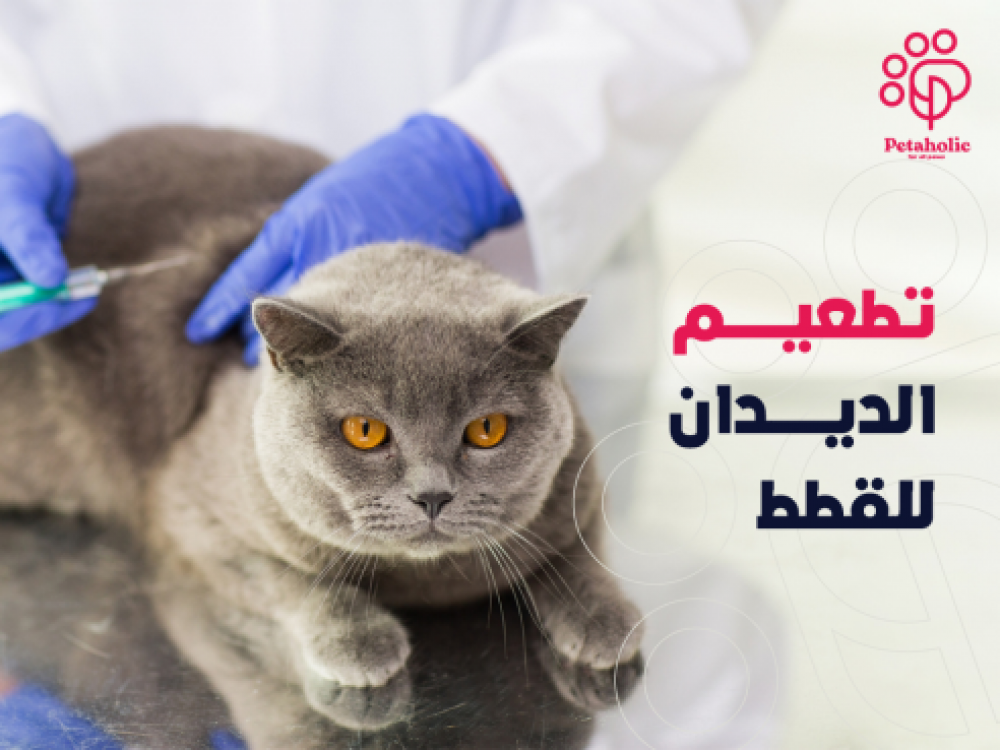
Worms can sometimes cause severe problems and illnesses for the cats themselves, but they can also be transmitted to humans, and in rare cases they can be the cause of serious illness in humans. Therefore, regular worming of cats to prevent or eliminate infection is very important. In this guide, you will know everything about worms, how to take care of your cat if it is infected, and how to prevent it in the first place. At Petaholic, we have also provided you with all the supplies that will help you take care of your cat and maintain its health.
Why do you need worming for cats and when should your cat be vaccinated?
Every cat can get worms at some point in their lives. Often, infections can be controlled, but even animals that may appear healthy may have more sinister beginnings inside. Kittens often pick up worms from their mother's milk, while adult cats tend to catch them from other pets, infected prey, contaminated water, or ingest flea eggs while licking their fur and grooming themselves. Roundworms, tapeworms, and hookworms are found in the intestinal tract of cats and can cause discomfort, illness, and in rare cases, death.
Symptoms of worms in cats include diarrhea, lethargy, coarse or dull fur, itchy bottom, constant hunger with weight loss, or flatulence. However, cats that appear healthy can also carry worms, even if they don't show symptoms. Therefore, if left untreated, worms in the intestines of cats can lead to anemia, dehydration, intestinal obstruction, blockage of blood flow to the heart, inflammation of the arteries, and even death. It is also possible for some worm-related diseases to be transmitted to humans and pose a particular health risk to children. Hence it is important to teach children to wash their hands properly after playing with animals.
Thus, adult cats need to be dewormed at least every three months to keep away common parasites, such as roundworms and tapeworms. For cats that get out of the house a lot and are eager to hunt prey outside, or that live a lot outdoors, we recommend getting them vaccinated monthly. As for young cats, they need to be vaccinated from worms every two weeks from the age of three weeks until they reach the age of four months.
Among the products necessary for the health of your cat, which we recommend to you at Petaholic:
How do cats get worms and where does the threat come from?
Throughout their lives, parasites pose dangers in many ways, and we need to be conscious of protecting our cats properly. Here are the most important sources of threat that can be the cause of worms in cats at any stage of their lives.
Mothers cats
After birth, kittens can get worms from their mother's milk, as roundworm larvae can find their way into the mammary ducts. Since the mother is a constant source of infection, regular worming every two weeks until weaning is complete is essential.
The environment in which the cat lives
Roundworm eggs are passed out in the feces of an infected cat, and mature to an infective stage in the environment. Infectious larvae are capable of causing infection if ingested. So contaminated grass, food and water can transmit the infection. Therefore, getting rid of cat feces on a regular basis is very important. Nursing mothers also often become infected when they clean up after their droppings, and the cycle continues as the larvae pass through the milk again.
If the cat eats the prey, it needs to deworm the cat
Cats who are active hunters are at greater risk of infection, with prey animals such as rabbits and ferrets acting as intermediaries for many nasty species of roundworms and tapeworms. Cats can also catch the infection by eating slugs and snails. Therefore, these cats are the ones most in need of worming for cats regularly.
fleas
Regular flea treatments go hand in hand with worming. Fleas feed on eggs, carrying the larvae of the most common tapeworm, and if your cat accidentally ingests a flea while grooming itself, you can almost certainly get an infection.
the food
There are types of tapeworms that hibernate in the muscle tissue of the average cat, and if the cat is fed raw or undercooked meat, they become active and become alive to infect the cat.
Some of the products you will need to protect your cat and your home from any unwanted diseases or infections are:
How do you vaccinate your cat against worms?
Most deworming treatments come in the form of tablets, although there are other types of vaccinations such as drinking medications, as well as granules to sprinkle on the cat's food and topical worming treatments applied to the skin on the back of the cat's neck. Giving cats any type of oral medication can be difficult, so you may need to consider other options than vaccination.
If oral worming treatment is causing your cat stress and anxiety, ask your vet about alternative options that are appropriate for your cat. Topical deworming treatment or pellets mixed with food may be best for your picky cat.
Another option for worming vaccinations is a combination of worm and flea treatments. One dose prevents multiple parasite problems in your pet, reducing the number of medications you need to administer.
Among the products necessary for the health and safety of your cat:
In the end, no matter how much you or your cat hates worms, don't neglect them. This quick and simple method will help keep your cat and your entire family safe. You can also find in Petaholic a wide range of products that will maintain the health and safety of your cat and your family from any possible infections or diseases, and this is our last thing about worming for cats
You may also like :-

